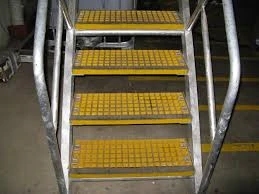
-
 Afrikaans
Afrikaans -
 Albanian
Albanian -
 Amharic
Amharic -
 Arabic
Arabic -
 Armenian
Armenian -
 Azerbaijani
Azerbaijani -
 Basque
Basque -
 Belarusian
Belarusian -
 Bengali
Bengali -
 Bosnian
Bosnian -
 Bulgarian
Bulgarian -
 Catalan
Catalan -
 Cebuano
Cebuano -
 China
China -
 China (Taiwan)
China (Taiwan) -
 Corsican
Corsican -
 Croatian
Croatian -
 Czech
Czech -
 Danish
Danish -
 Dutch
Dutch -
 English
English -
 Esperanto
Esperanto -
 Estonian
Estonian -
 Finnish
Finnish -
 French
French -
 Frisian
Frisian -
 Galician
Galician -
 Georgian
Georgian -
 German
German -
 Greek
Greek -
 Gujarati
Gujarati -
 Haitian Creole
Haitian Creole -
 hausa
hausa -
 hawaiian
hawaiian -
 Hebrew
Hebrew -
 Hindi
Hindi -
 Miao
Miao -
 Hungarian
Hungarian -
 Icelandic
Icelandic -
 igbo
igbo -
 Indonesian
Indonesian -
 irish
irish -
 Italian
Italian -
 Japanese
Japanese -
 Javanese
Javanese -
 Kannada
Kannada -
 kazakh
kazakh -
 Khmer
Khmer -
 Rwandese
Rwandese -
 Korean
Korean -
 Kurdish
Kurdish -
 Kyrgyz
Kyrgyz -
 Lao
Lao -
 Latin
Latin -
 Latvian
Latvian -
 Lithuanian
Lithuanian -
 Luxembourgish
Luxembourgish -
 Macedonian
Macedonian -
 Malgashi
Malgashi -
 Malay
Malay -
 Malayalam
Malayalam -
 Maltese
Maltese -
 Maori
Maori -
 Marathi
Marathi -
 Mongolian
Mongolian -
 Myanmar
Myanmar -
 Nepali
Nepali -
 Norwegian
Norwegian -
 Norwegian
Norwegian -
 Occitan
Occitan -
 Pashto
Pashto -
 Persian
Persian -
 Polish
Polish -
 Portuguese
Portuguese -
 Punjabi
Punjabi -
 Romanian
Romanian -
 Russian
Russian -
 Samoan
Samoan -
 Scottish Gaelic
Scottish Gaelic -
 Serbian
Serbian -
 Sesotho
Sesotho -
 Shona
Shona -
 Sindhi
Sindhi -
 Sinhala
Sinhala -
 Slovak
Slovak -
 Slovenian
Slovenian -
 Somali
Somali -
 Spanish
Spanish -
 Sundanese
Sundanese -
 Swahili
Swahili -
 Swedish
Swedish -
 Tagalog
Tagalog -
 Tajik
Tajik -
 Tamil
Tamil -
 Tatar
Tatar -
 Telugu
Telugu -
 Thai
Thai -
 Turkish
Turkish -
 Turkmen
Turkmen -
 Ukrainian
Ukrainian -
 Urdu
Urdu -
 Uighur
Uighur -
 Uzbek
Uzbek -
 Vietnamese
Vietnamese -
 Welsh
Welsh -
 Bantu
Bantu -
 Yiddish
Yiddish -
 Yoruba
Yoruba -
 Zulu
Zulu
fiberglass tank
The Advantages of Fiberglass Tanks A Comprehensive Overview
In recent years, the demand for efficient and durable storage solutions has led to the rising prominence of fiberglass tanks in various industries. These tanks are made of reinforced plastic, primarily composed of glass fibers, and are known for their exceptional strength-to-weight ratio, corrosion resistance, and versatility. In this article, we will explore the numerous advantages of fiberglass tanks and their applications across different sectors.
Durability and Longevity
One of the primary benefits of fiberglass tanks is their inherent durability. Unlike traditional metal tanks, which can corrode due to chemical exposure and environmental factors, fiberglass tanks are resistant to rust and deterioration. This durability translates into a longer lifespan, making fiberglass tanks a more cost-effective option over time. Industry studies suggest that fiberglass tanks can last upwards of 30 years with minimal maintenance, significantly reducing the need for replacements.
Corrosion Resistance
Fiberglass tanks exhibit remarkable resistance to a wide range of chemicals, including acids, alkalis, and salts, which are common in various industrial processes. This resistance ensures that the integrity of the tank remains intact even when exposed to harsh substances, thereby preventing leaks and contamination. For businesses that handle corrosive materials, using fiberglass tanks can mitigate the risks associated with storage failures, enhancing overall safety.
Lightweight and Easy to Handle
Compared to traditional materials such as steel or concrete, fiberglass is significantly lighter. This feature not only makes transportation easier but also simplifies the installation process. The lightweight nature of fiberglass allows for reduced structural requirements, meaning less robust foundations are necessary to support the tanks. As a result, businesses can save on both material costs and installation time.
Customization Options
fiberglass tank

Fiberglass tanks can be manufactured in various shapes and sizes to meet specific storage needs. Customization is a significant advantage, as it allows industries to design tanks that fit their unique operations. Whether for storing water, chemicals, or wastewater, fiberglass tanks can be tailored to size, shape, and capacity, maximizing efficiency and accessibility.
Cost-Effectiveness
Although the initial investment in fiberglass tanks may be higher than that of traditional metal tanks, the long-term benefits often outweigh these costs. As mentioned earlier, fiberglass tanks require less maintenance, have longer lifespans, and offer superior corrosion resistance, all of which contribute to lower total ownership costs. Additionally, the efficiency in handling and installation can lead to further savings, making fiberglass an economically wise choice for businesses.
Environmental Impact
With increasing concerns about environmental sustainability, fiberglass tanks present a favorable option. Their durability and chemical resistance reduce the likelihood of spills and leaks, which can have catastrophic effects on the environment. Furthermore, fiberglass production generally has a lower carbon footprint compared to the extraction and processing of metals, aligning with global efforts to reduce environmental impact.
Applications Across Industries
Fiberglass tanks find applications in a diverse range of industries, including agriculture, wastewater treatment, chemical processing, and food and beverage. In agriculture, they are often used for irrigation systems and water storage. In wastewater management, their resistance to corrosive materials makes them ideal for holding treated effluent before it is released into the environment. In chemical processing, fiberglass tanks safely store various liquids, from simple water solutions to complex chemical mixtures. In the food and beverage industry, their non-reactive properties ensure the integrity of food products during storage.
Conclusion
The advantages of fiberglass tanks make them a preferred choice for many industries seeking safe, durable, and efficient storage solutions. Their corrosion resistance, lightweight nature, customization options, and environmental benefits position them as a valuable asset in today's industrial landscape. As businesses continue to prioritize sustainability and efficiency, fiberglass tanks will undoubtedly play an essential role in shaping the future of storage technologies.









